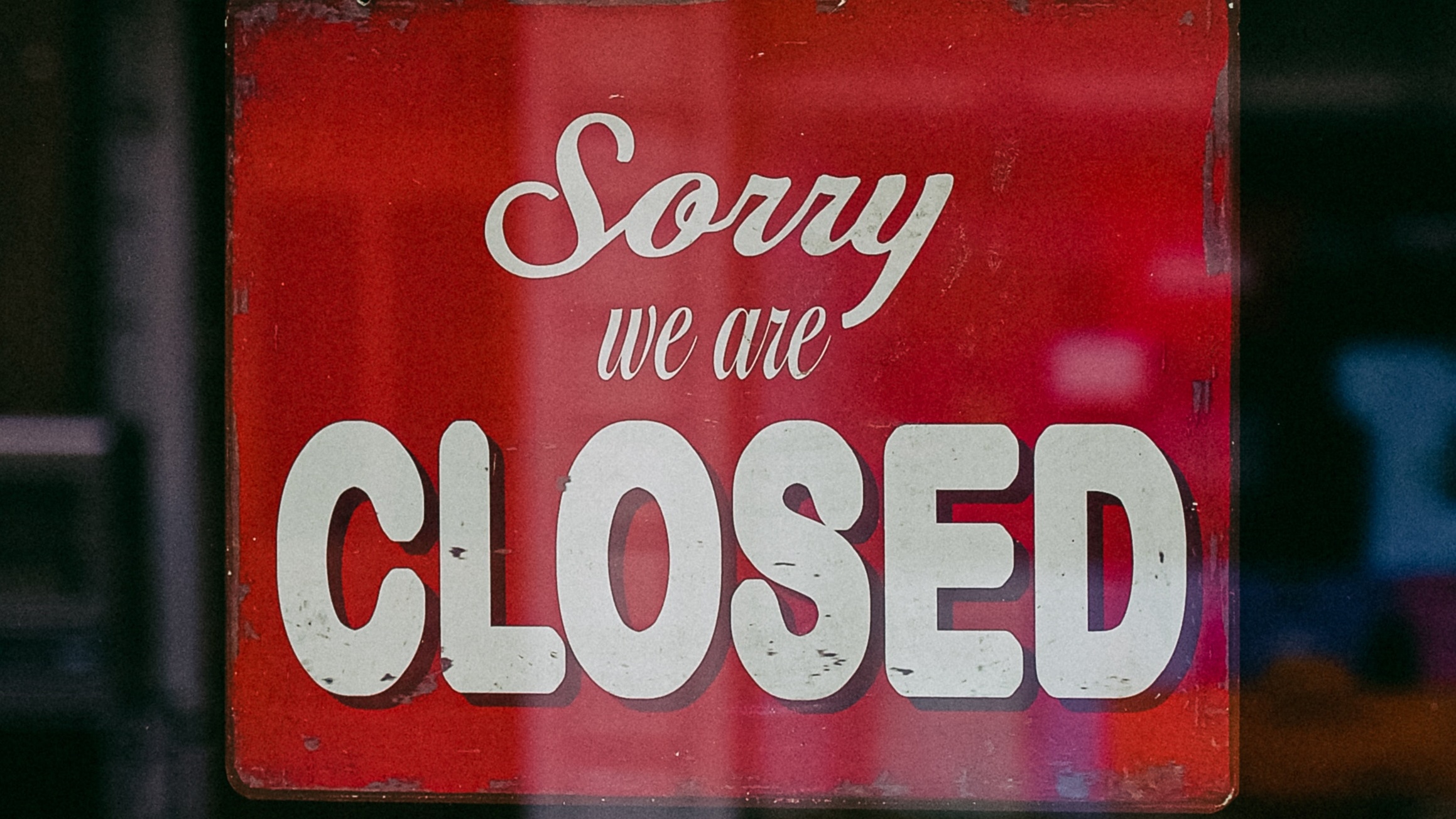The coronavirus pandemic has done irreparable harm to Black businesses across the country, according to a new study from the Stanford Institute for Economic Policy Research. The study was led by Robert Fairlie, an economics professor at the University of California, Santa Cruz.
In the study — which Fairlie said is the "first analysis of impacts of the pandemic on the number of active small businesses in the United States" — it was found that 41% of all Black businesses closed permanently between February and April.
According to the research, the number of Black business owners fell by 440,000 in just those three months, wiping out decades of hard work.
"African-Americans experienced the largest losses, eliminating 41 percent of business owners. Latinx also experienced major losses with 32 percent of business owners disappearing between February and April 2020. Immigrant business owners suffered a large drop of 36 percent, and female business owners suffered a disproportionate drop of 25 percent," he wrote, adding that 17% of white-owned businesses have closed.
"The findings are alarming. The number of African-American business owners plummeted from 1.1 million in February 2020 to 640,000 in April. The loss of 440,000 Black business owners representing 41 percent of the previous level is disconcerting," he added.
Fairlie goes on to detail how businesses centered around retail, dining and entertainment all suffered double-digit business losses. Almost every industry suffered from steep losses except agriculture.
One of the things that affected the numbers greatly was industry distribution, Fairlie said. While millions of Black people work at essential businesses, Black people represent the lowest percentage of business owners in essential industries.
"The industry distribution of black business owners placed them at a higher risk of losses due to COVID-19. The percent change in black business owners becomes considerably smaller when simulations are run with the national industry distribution. The change is from a loss of 41 percent to a loss of 35 percent," he wrote.
"Another way to estimate industry impacts is to examine the percentage of each demographic group that is in 'essential' industries. … The percentage of black business owners in essential industries is 66 percent which is lower than the national percentage of 76 percent, and consistent with the less 'favorable' industry distribution placing them at higher risk of losses due to COVID-19. Similarly, female-owned businesses are less concentrated in essential businesses at 61 percent," Fairlie added.
The study goes on to paint a dire picture of the economy, illustrating the historic nature of what the United States is currently going through.
Between February and April, Fairlie said the number of active business owners in the country had fallen from 15 million to 11.7 million. According to his analysis, there has never been any other window of time with data showing that big of a change in the number of businesses.
"For comparison, from the start to end of the Great Recession the number of business owners decreased by 730,000 representing only a 5 percent reduction," Fairlie noted.
The study ends by going through some of the lackluster measures taken by the federal government to assist struggling businesses.
The Paycheck Protection Program has caused outrage because companies like Ruth’s Chris Steak House, Potbelly Sandwich Shops and the Lakers received millions in aid, draining the fund before the money could be given to small businesses.
Treasury Secretary Steven Mnuchin raised eyebrows on Wednesday when he refused to name any of the companies that received subsidized loans.
“As it relates to the names and amounts of specific PPP loans, we believe that that’s proprietary information, and in many cases for sole proprietors and small businesses, it is confidential information. The reason why we’re not disclosing the names and amounts, unlike in the 7(a) program, is because of that issue,” Mnuchin said before the Senate Committee on Small Business and Entrepreneurship.
The Washington Post reported that there has been concern among members of Congress about the White House's efforts to shield themselves from any accountability in how the loans were disbursed. The newspaper also quoted a Securities and Exchange Commission report that found $1 billion in stimulus funding went to nearly 300 publicly traded companies.
On the other hand, Black business owners have said they were shut out of the loan program altogether. As Blavity previously reported, financial experts said it was possible upwards of 95% of Black-owned businesses were being shut out of the Paycheck Protection Program in April.
"Based on how the program is structured, we estimate that upwards of 90% of businesses owned by people of color have been, or will likely be, shut out of the Paycheck Protection Program," said Ashley Harrington, director of federal advocacy and senior council for the Center for Responsible Lending.
"Roughly 95% of Black-owned businesses, 91% of Latino-owned businesses, 91% of Native Hawaiian or Pacific Islander-owned businesses, and 75% of Asian-owned businesses stand close to no chance of receiving a PPP loan through a mainstream bank or credit union," the Center for Responsible Lending wrote.
CBS News reported the Black business downturn can be attributed to a number of factors, including meager savings, an inability to withstand such a long period of closure and limited access to bank credit.
"Emergency loans for these small-scale sole proprietors for paying their rent or internet costs, or whatever their monthly costs, could be really important. That could allow them to survive because we really don't want to see this major round of business closures coming out of the pandemic," Fairlie told CBS MoneyWatch in an interview.
